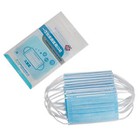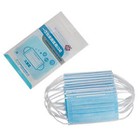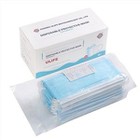Is There Such A Big Difference Between Viruses And Bacteria
People eat whole grains, how can they not get sick? Many things we come into contact with in daily life contain viruses and bacteria. Viruses will lurk in the air, water, objects and human body, and will only break out in a suitable temperature and humidity environment, which will damage our body immunity. Bacteria are widely present in the organs of the human body and the living environment (dust), because the growth of bacteria requires a relatively humid environment.
Two of the most disease-causing microbes are viruses and bacteria, both of which are microbes that can trigger an immune system response, but viruses and bacteria are very different.
1. Bacteria
Let's start with bacteria. These single-celled organisms have cell membranes and they can survive in a wide range of temperatures, which means we can find them almost anywhere. Bacteria use circular DNA to reproduce and feed on organic and inorganic matter, decaying plant and animal cells, and even our food. Some bacteria can even photosynthesize like plants.
Bacteria are not all bad, they can also be good for the body.
In fact, most bacteria are not harmful at all, and our skin and gut are full of bacteria. As you probably know, these bacteria make up our microbiome, the microbes on your skin that help remove dirt and dead skin cells, and the bacteria in your gut that help digest food.
And some bacteria are harmful to humans, especially when they multiply where they shouldn't. That's why, bacterial infections often affect localized areas of the body, irritating or damaging healthy tissue, examples of common bacterial infections are strep throat, food poisoning and ulcers.
2. Viruses
Viruses are much smaller than bacteria and are not considered living things. They are infectious agents that have only a protein coat and a stretch of RNA or DNA, depending on the type of virus. They do not reproduce on their own like bacteria, which require host cells to reproduce for them.
Bacteria can be harmful or beneficial to you, but most viruses simply cause disease. Some common viruses are: rhinovirus (causes the common cold), varicella virus (causes chickenpox), and herpes virus (causes cold sores). Symptoms such as stuffy nose, pain, cough, and fatigue.
Symptoms caused by viruses are physical signals that the body notifies us that there is a problem in the body. TAs will remind us that the body may be infected by bacteria or viruses. Symptoms gradually lessen as the immune system clears the infection from the body.
Symptoms that occur when sick actually help the body fight infection, see how the immune system works with symptoms to protect us from germs.
① Fever
Infection raises body temperature, making fever uncomfortable, but it's a tactic the immune system uses to destroy viruses. Some bacteria have a hard time surviving the heat, and a fever can turn the body into an environment where viruses can't live.
② runny nose
A runny nose occurs when the nasal mucosa is attacked by a virus because the body secretes a large amount of mucus to trap bacteria and expel them. A runny nose is a sign that the immune system is working hard to fight off the source of infection.
③ cough
If cells in the airways spot the invader, it triggers a cough. Coughing hard clears dust, bacteria, and viruses from the throat and lungs, and coughing can also help clear excess mucus from the nose and throat.
④ Sneezing
Like coughing, sneezing is a reflex function. This powerful immune response quickly clears nasal bacteria.
Once a virus invades, the immune system produces antibodies, small proteins that mark the virus, and the antibodies direct immune system factors like white blood cells to the virus. That way, the body's defense forces can wipe them out, along with the infected cells.
So antibiotics don't work against viruses, and the body has to rely on its own immune system. The immune system gradually produces antibodies that recognize the virus and prevent it from infecting healthy cells, which is why healthy habits are worth maintaining. Because, having a healthy lifestyle helps keep your immune system healthy.
Some viruses can be prevented with vaccines, which help the body produce antibodies before exposure to the virus. Usually, some proteins that can improve immunity can also be supplemented, such as immunoglobulin, sumino lactoferrin, etc., so that the body can prepare for resistance when certain viruses appear.
Related News
- Material Characteristics Of Medical Surgical Masks
- Why Can Surgical Mask Be Anti-virus
- Child Face Mask Are Not Simple
- Can You Buy Disposable Face Masks
- What Can I Use Instead Of Disposable Mask
- Can Disposable Masks Be Used Again
- What Is A Disposable Mask
- How Can A Person With A Weak Physique Gradually...
- Why Are Medical Masks Available in Pink?
- How To Prevent Epidemics Scientifically?
- What Is The Difference Between N95, KN95, Medic...
- What Kind Of Mask To Wear For New Coronavirus P...
- Why Are Face Masks Disposable
- How Many Times Can You Wear A Kn95 Face Mask
- Coronavirus: Disposable Masks 'causing A Lot Of...
- It Takes 450 Years For Disposable Face Mask To ...
- What Is The Difference Between Pink Medical Mas...
- Can The KN95 Mask Prevent New Coronary Virus?
Related Products








